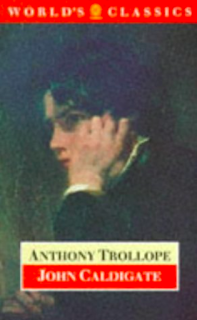Whenever I find a little-known book by a famous author, I always wonder whether it's sadly neglected, overlooked, or . . . is it just not that good? Is there a reason why nobody reads it? This was my thought when I picked up The Fruit of the Tree, a 1907 novel written by one of my favorite authors, Edith Wharton. Written exactly between The House of Mirth and Ethan Frome (two of my all-time favorite classics) I was curious to know why this novel is so little read.
Juxtaposing both the society characters she knew so well and the social commentary, it's the story of John Amherst, a young, idealistic assistant manager at a large mill in the fictional town of Hanaford, probably somewhere in New England or upstate New York. We first meet Amherst in a hospital as he checks on the condition of a worker badly injured on the job. The doctor on duty (related by marriage to the factory's manager) stoutly protests that he'll recover, but privately, a volunteer nurse reveals to Amherst that the injured man will most certainly lose a hand, if not his entire arm.
Amherst is determined to change working conditions in the factory, and his chance arises the next day -- the factory's owner, newly widowed Bessy Westmore, is here to tour the factory she now controls after her husband's death. The factory manager is home ill, so Amherst seizes his chance to tell Mrs. Westmore the truth about the factory, and his hopes to improve it. He's young, handsome, and idealistic, and Mrs. Westmore is young, beautiful, and lonely, so one thing leads to another and they wind up getting married.
Of course, nothing is easy or happy in a Wharton novel, and a few years later, neither John nor Bessy is happy. Bessy resents the time John spends at the factory, not to mention the money the improvements are costing, and John is disappointed that Bessy doesn't seem to share his hopes to make real changes. He's getting tired of fighting Bessy's family and the people influencing her to keep him out of the mill.
Meanwhile, the young nurse, Justine Brent has also reappeared -- coincidentally she's an old school mate of Bessy's who fell on hard times and had to make a career for herself. Amherst engages her as a personal nurse/companion to Bessy, but as his relationship to his wife cools, he finds himself more and more attracted to Justine and her sense of social justice.
There are some big, dramatic plot twists, and then it turns into a bit of a sensation novel, but much wordier (imagine Wilkie Collins and Henry James writing a novel together and stole the setting from Elizabeth Gaskell). It kind of alternated between being slow and cerebral, with dramatic events. I'd get bored but then all of a sudden something super-dramatic would happen, then it would slow down again. I don't know if it's quarantine brain, but I was having a hard time with the more cerebral bits.
The setting definitely reminded me of North and South by Elizabeth Gaskell, and there are definitely plot elements that foreshadow Ethan Frome -- there's a sledding scene that is symbolic, but not nearly as pivotal as Ethan Frome. Wharton also touches on some issues which must have been very controversial for their time. I suppose this could be why it just isn't as popular as some of her other works.
I was also a bit put off by the fact that my Virago edition was 633 pages long! However, when I started reading it, I realized there was an awful lot of white space on each page, the margins are huge. I compared it to my Modern Library copy of House of Mirth which is less than 350 pages long. I checked the iBooks downloads, and they're really almost the same length. And there are hardly any editions in print. I checked the page count from the original 1907 copy and it's the same, so I suspect they're just using the same plates as the first edition. So I guess technically it counts toward the Big Book Summer Challenge.
I'm glad I read it because I am huge Wharton fan, but I don't know if I'd really recommend it. However, it's one more book crossed off my Classics Club List and one more off my owned-and-unread shelves. I still own Hudson River Bracketed but I might have to take a break from Wharton, maybe I'll tackle her biography instead.
Juxtaposing both the society characters she knew so well and the social commentary, it's the story of John Amherst, a young, idealistic assistant manager at a large mill in the fictional town of Hanaford, probably somewhere in New England or upstate New York. We first meet Amherst in a hospital as he checks on the condition of a worker badly injured on the job. The doctor on duty (related by marriage to the factory's manager) stoutly protests that he'll recover, but privately, a volunteer nurse reveals to Amherst that the injured man will most certainly lose a hand, if not his entire arm.
Amherst is determined to change working conditions in the factory, and his chance arises the next day -- the factory's owner, newly widowed Bessy Westmore, is here to tour the factory she now controls after her husband's death. The factory manager is home ill, so Amherst seizes his chance to tell Mrs. Westmore the truth about the factory, and his hopes to improve it. He's young, handsome, and idealistic, and Mrs. Westmore is young, beautiful, and lonely, so one thing leads to another and they wind up getting married.
 |
| "He stood by her in silence, his eyes on the injured man." |
Of course, nothing is easy or happy in a Wharton novel, and a few years later, neither John nor Bessy is happy. Bessy resents the time John spends at the factory, not to mention the money the improvements are costing, and John is disappointed that Bessy doesn't seem to share his hopes to make real changes. He's getting tired of fighting Bessy's family and the people influencing her to keep him out of the mill.
Meanwhile, the young nurse, Justine Brent has also reappeared -- coincidentally she's an old school mate of Bessy's who fell on hard times and had to make a career for herself. Amherst engages her as a personal nurse/companion to Bessy, but as his relationship to his wife cools, he finds himself more and more attracted to Justine and her sense of social justice.
There are some big, dramatic plot twists, and then it turns into a bit of a sensation novel, but much wordier (imagine Wilkie Collins and Henry James writing a novel together and stole the setting from Elizabeth Gaskell). It kind of alternated between being slow and cerebral, with dramatic events. I'd get bored but then all of a sudden something super-dramatic would happen, then it would slow down again. I don't know if it's quarantine brain, but I was having a hard time with the more cerebral bits.
The setting definitely reminded me of North and South by Elizabeth Gaskell, and there are definitely plot elements that foreshadow Ethan Frome -- there's a sledding scene that is symbolic, but not nearly as pivotal as Ethan Frome. Wharton also touches on some issues which must have been very controversial for their time. I suppose this could be why it just isn't as popular as some of her other works.
I was also a bit put off by the fact that my Virago edition was 633 pages long! However, when I started reading it, I realized there was an awful lot of white space on each page, the margins are huge. I compared it to my Modern Library copy of House of Mirth which is less than 350 pages long. I checked the iBooks downloads, and they're really almost the same length. And there are hardly any editions in print. I checked the page count from the original 1907 copy and it's the same, so I suspect they're just using the same plates as the first edition. So I guess technically it counts toward the Big Book Summer Challenge.
I'm glad I read it because I am huge Wharton fan, but I don't know if I'd really recommend it. However, it's one more book crossed off my Classics Club List and one more off my owned-and-unread shelves. I still own Hudson River Bracketed but I might have to take a break from Wharton, maybe I'll tackle her biography instead.






























